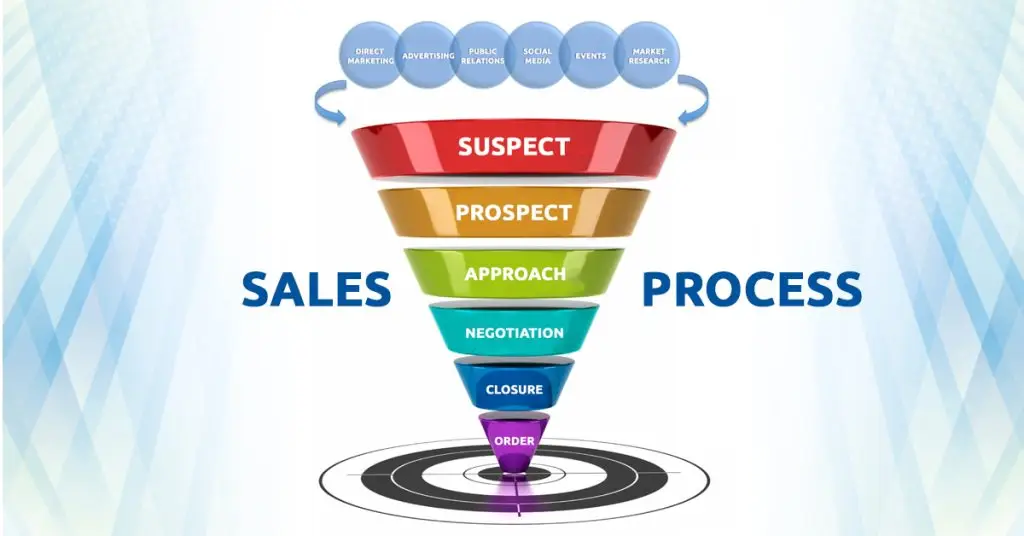Introduction to Sales Methodologies
I have used sales methodologies over my career starting in the 80s with Cincom Systems working in alliances roles and finally with Kryon Systems as Chief Revenue Officer. These methodologies and processes have changed over time from being paper-based to fully online and integrated with CRM systems, but their basic premise hasn’t changed. I’ve found using a sales methodology invaluable both from a selling point of view and from a sales management perspective. At Kryon Systems we picked MEDDIC since it addressed the key needs at the time. We integrated it directly with Salesforce and we’re able to better understand our prospects and how to turn them into great customers.
As a sales professional, you know that there is no one-size-fits-all approach when it comes to selling. Every customer is different, and every sales situation requires a different approach. That’s why it’s important to have a sales methodology in place – a framework that guides your sales process and helps you close more deals.
In this article, we’ll take a look at some of the most popular sales methodologies in use today. We’ll explore the benefits of using a sales methodology, the different types of sales methodologies available, and the pros and cons of each. By the end of this article, you’ll have a better understanding of which sales methodology might work best for your business.
Benefits of Using Sales Methodologies
Using a sales methodology has many benefits, including:
- Increased Efficiency: A sales methodology provides a clear framework for your sales process. This can help you to identify and eliminate inefficiencies, such as unnecessary steps in the sales process or time wasted on unproductive leads.
- Improved Consistency: By using a sales methodology, you can ensure that your sales team is using a consistent approach to selling. This can help to improve the overall quality of your sales process, which can lead to more successful deals.
- Better Customer Understanding: A sales methodology can help you to better understand your customers’ needs and preferences. This can help you to tailor your sales approach to meet their specific needs, which can lead to more successful deals.
- Increased Sales: Ultimately, the goal of any sales methodology is to increase sales. By using a proven sales methodology, you can improve your chances of closing more deals and generating more revenue for your business.
The Different Types of Sales Methodologies
There are many different types of sales methodologies in use today. Some of the most popular ones include:
- Consultative Selling: This approach focuses on building relationships with customers and helping them to find the best solution for their needs. This often involves asking a lot of questions and listening carefully to the customer’s responses.
- The Challenger Sale: This approach encourages salespeople to challenge the customer’s assumptions and push them outside of their comfort zone. This can be an effective approach for complex, high-value sales.
- Solution Selling: This approach focuses on selling a complete solution to the customer’s problem, rather than just a product or service. This can be an effective approach for companies that offer a range of complementary products or services.
- SPIN Selling: This approach focuses on asking the customer a series of questions to uncover their needs and pain points. This can help salespeople to better understand the customer’s needs and tailor their sales approach accordingly.
- SNAP Selling: This approach focuses on making the sales process as simple as possible for the customer. This often involves identifying the customer’s pain points and offering a simple, easy-to-implement solution.
- The Sandler Selling System: This approach focuses on building a relationship with the customer and helping them to identify their own needs and goals. This can be an effective approach for complex, high-value sales.
- The MEDDIC Sales Methodology: This approach focuses on qualifying leads based on their ability to buy, rather than just their interest in the product or service. This can be an effective approach for companies that sell to large enterprises.
The Pros and Cons of Popular Sales Methodologies
Each sales methodology has its own set of pros and cons. Let’s take a closer look at some of the most popular sales methodologies:
Consultative Selling
Pros:
- Builds strong relationships with customers
- Helps to uncover customer needs and pain points
- Can lead to more successful deals in the long term
Cons:
- Can be time-consuming
- May not be as effective for short-term sales goals
- Requires a high degree of empathy and listening skills
The Challenger Sale
Pros:
- Can be effective for complex, high-value sales
- Encourages customers to think outside of their comfort zone
- Can help to differentiate your product or service from competitors
Cons:
- May not be as effective for customers who are risk-averse
- Can be seen as confrontational or aggressive by some customers
- Requires a high degree of product knowledge and expertise
Solution Selling
Pros:
- Focuses on selling a complete solution to the customer’s problem
- Can be effective for companies that offer a range of complementary products or services
- Helps to build long-term relationships with customers
Cons:
- Can be complex and time-consuming
- Requires a deep understanding of the customer’s needs
- May not be as effective for customers who are looking for a quick fix
SPIN Selling
Pros:
- Helps to uncover customer needs and pain points
- Can be effective for complex sales
- Provides a clear framework for the sales process
Cons:
- Can be time-consuming
- Requires a high degree of questioning and listening skills
- May not be as effective for customers who are looking for a quick fix
SNAP Selling
Pros:
- Makes the sales process simple and easy for the customer
- Focuses on identifying and solving pain points
- Can be effective for short-term sales goals
Cons:
- May not be as effective for complex sales
- Requires a deep understanding of the customer’s needs
- May not be suitable for all types of products or services
The Sandler Selling System
Pros:
- Focuses on building a relationship with the customer
- Helps to identify the customer’s needs and goals
- Can be effective for complex, high-value sales
Cons:
- Can be time-consuming
- Requires a high degree of product knowledge and expertise
- May not be as effective for short-term sales goals
The MEDDIC Sales Methodology
Pros:
- Helps to qualify leads based on their ability to buy
- Provides a clear framework for the sales process
- Can be effective for companies that sell to large enterprises
Cons:
- Can be time-consuming
- May not be as effective for smaller companies or startups
- Requires a high degree of product knowledge and expertise
Choosing the Right Sales Methodology for Your Business
When choosing a sales methodology for your business, it’s important to consider your goals, your target market, and your product or service. Some sales methodologies are better suited to certain types of customers or products, while others may be more effective for short-term or long-term sales goals.
It’s also important to consider your sales team’s strengths and weaknesses. Some sales methodologies require a high degree of questioning and listening skills, while others may require a deep understanding of the product or service being sold.
Ultimately, the right sales methodology for your business will depend on a variety of factors. It’s important to do your research, consider your options, and choose a sales methodology that aligns with your business goals and values.
Implementing Your Chosen Sales Methodology
Once you’ve chosen a sales methodology for your business, it’s important to implement it effectively. This may involve providing training and support to your sales team, updating your sales process to align with the new methodology, and measuring the success of your sales efforts.
It’s also important to be flexible and willing to adjust your sales methodology as needed. No sales methodology is perfect, and there may be times when you need to make adjustments to better meet the needs of your customers or your business.
Measuring the Success of Your Sales Methodology
Measuring the success of your sales methodology is critical to ensuring its ongoing effectiveness. This may involve tracking metrics such as conversion rates, deal size, and customer satisfaction.
It’s important to regularly review your sales process and make adjustments as needed. This can help you to identify areas for improvement and ensure that your sales methodology is delivering the results you need.
Conclusion
Choosing the right sales methodology for your business can be a complex process. By considering your goals, your target market, and your sales team’s strengths and weaknesses, you can identify the best approach for your business.
Whether you choose consultative selling, the challenger sale, solution selling, SPIN selling, SNAP selling, the Sandler selling system, or the MEDDIC sales methodology, it’s important to implement your chosen methodology effectively, measure its success, and be willing to make adjustments as needed. At Kryon, we made several adjustments until we saw evidence of the methodology working.
With the right sales methodology in place, you can improve the efficiency and effectiveness of your sales process, build stronger relationships with your customers, and ultimately drive more sales for your business.





